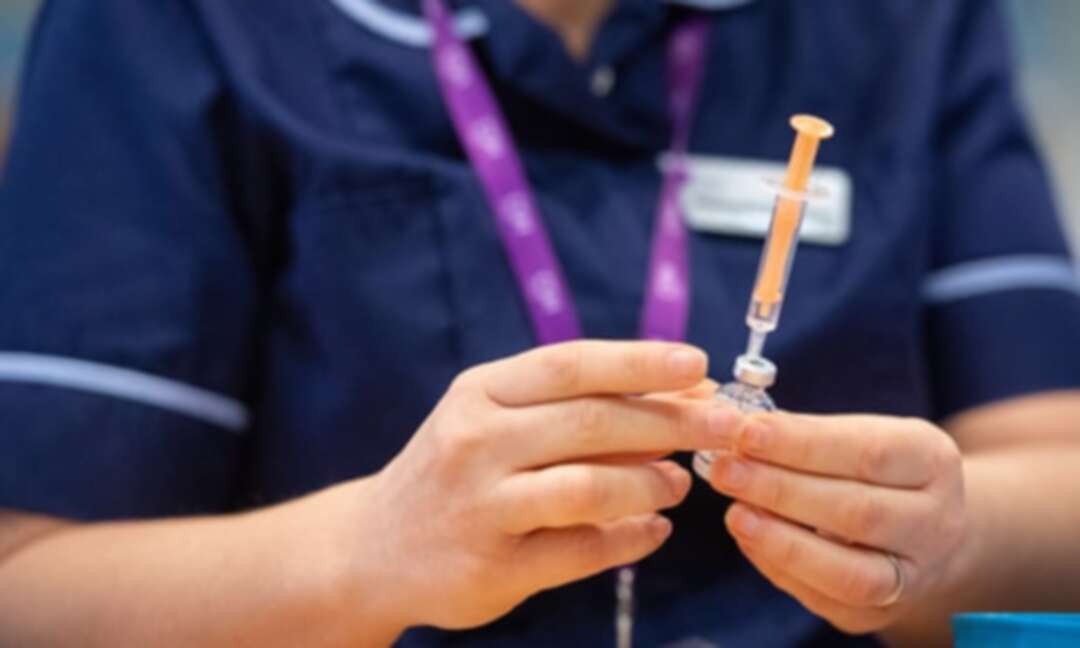-
Recovering from Covid gives similar level of protection to vaccine

PHE found immunity from earlier infection provided 83% protection against reinfection for at least 20 weeks
People who recover from coronavirus have a similar level of protection against future infection as those who receive a Covid vaccine – at least for the first five months, research suggests.
A Public Health England (PHE) study of more than 20,000 healthcare workers found that immunity acquired from an earlier Covid infection provided 83% protection against reinfection for at least 20 weeks.
The findings show that while people are unlikely to become reinfected soon after their first infection, it is possible to catch the virus again and potentially spread it to others.
“Overall I think this is good news,” said Prof Susan Hopkins, a senior medical adviser to PHE. “It allows people to feel that prior infection will protect them from future infections, but at the same time it is not complete protection, and therefore they still need to be careful when they are out and about.”
PHE recruited healthcare workers from hospitals across the UK and divided them into two groups: those who had coronavirus before and those who had not. Between June and November last year, the participants underwent fortnightly PCR tests for the virus, and monthly tests to examine the antibody levels in their blood.
ptomatic reinfection, and 75% protection against asymptomatic reinfection.
The cases are referred to as “potential” reinfections because a detailed genetic analysis of both first and second viruses must be done to confirm a reinfection, but information for the first infections was often not available.
“The immunity gives you a similar effect to the Pfizer vaccine and a much better effect than the AstraZeneca vaccine and that is reassuring for people. But we still see people who could transmit and so we want to strike a note of caution,” Prof Hopkins said. In clinical trials, two doses of the Pfizer vaccine had an efficacy of 95%, compared with 62% from two doses of the Oxford/AstraZeneca vaccine.
While the study is encouraging, it is unclear whether the same protection applies to older people. The study participants were aged 35 to 54 and would be expected to have robust immune systems. Older people tend to have weaker immune responses that are more short-lived.
Another question mark hangs over the risk of reinfection from new Covid variants spotted in the UK, South Africa and Brazil, an issue PHE will investigate as the study continues this year.
“What one thinks of the numbers is very much a ‘glass half full or half empty?’ question,” said Danny Altmann, professor of immunology at Imperial College. “To many, it may be disappointing to put hard numbers to the idea that immunity to this virus is seemingly so variable and feeble that there is a greater than 1 in 10 chance of suffering reinfection, even at five months, let alone now, when many UK healthcare workers are more than nine months out from infections in the first wave.”
source: Ian Sample
Levant
You May Also Like
Popular Posts
Caricature
BENEFIT Sponsors BuildHer...
- April 23, 2025
BENEFIT, the Kingdom’s innovator and leading company in Fintech and electronic financial transactions service, has sponsored the BuildHer CityHack 2025 Hackathon, a two-day event spearheaded by the College of Engineering and Technology at the Royal University for Women (RUW).
Aimed at secondary school students, the event brought together a distinguished group of academic professionals and technology experts to mentor and inspire young participants.
More than 100 high school students from across the Kingdom of Bahrain took part in the hackathon, which featured an intensive programme of training workshops and hands-on sessions. These activities were tailored to enhance participants’ critical thinking, collaborative problem-solving, and team-building capabilities, while also encouraging the development of practical and sustainable solutions to contemporary challenges using modern technological tools.
BENEFIT’s Chief Executive Mr. Abdulwahed AlJanahi, commented: “Our support for this educational hackathon reflects our long-term strategic vision to nurture the talents of emerging national youth and empower the next generation of accomplished female leaders in technology. By fostering creativity and innovation, we aim to contribute meaningfully to Bahrain’s comprehensive development goals and align with the aspirations outlined in the Kingdom’s Vision 2030—an ambition in which BENEFIT plays a central role.”
Professor Riyadh Yousif Hamzah, President of the Royal University for Women, commented: “This initiative reflects our commitment to advancing women in STEM fields. We're cultivating a generation of creative, solution-driven female leaders who will drive national development. Our partnership with BENEFIT exemplifies the powerful synergy between academia and private sector in supporting educational innovation.”
Hanan Abdulla Hasan, Senior Manager, PR & Communication at BENEFIT, said: “We are honoured to collaborate with RUW in supporting this remarkable technology-focused event. It highlights our commitment to social responsibility, and our ongoing efforts to enhance the digital and innovation capabilities of young Bahraini women and foster their ability to harness technological tools in the service of a smarter, more sustainable future.”
For his part, Dr. Humam ElAgha, Acting Dean of the College of Engineering and Technology at the University, said: “BuildHer CityHack 2025 embodies our hands-on approach to education. By tackling real-world problems through creative thinking and sustainable solutions, we're preparing women to thrive in the knowledge economy – a cornerstone of the University's vision.”
opinion
Report
ads
Newsletter
Subscribe to our mailing list to get the new updates!






















